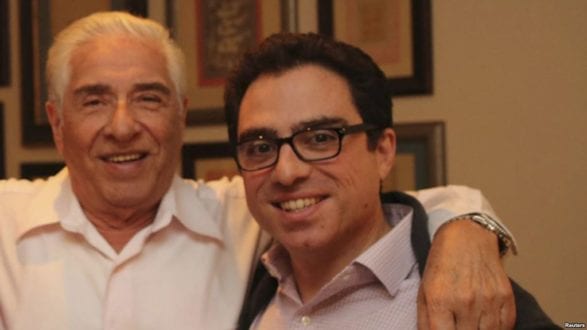Al-Monitor – As negotiators in Vienna work to revive the landmark nuclear agreement, the US and Iran are also holding indirect discussions over the possible release of several Americans held by the Islamic Republic.
The Biden administration has stressed that the nuclear deal and prisoner issue are separate, but in January, US Special Envoy for Iran Robert Malley told Reuters it is “hard for us to imagine” re-entering into a nuclear agreement if the four Americans were still held by Iran.
Rights groups accuse Iran of jailing Americans and other foreigners as a way of gaining leverage for sanctions relief, the unfreezing of assets and other concessions from their home countries. According to the New York-based Center for Human Rights, Iran is currently detaining at least 16 dual nationals and one foreign national.
Of that group, Iran is known to be holding four Iranian-Americans on vague spying charges that human rights groups describe as baseless. Here’s a closer look at each of them.
Siamak Namazi
Namazi, a business consultant who was living in Dubai, is the longest-held American prisoner in Iran. Days after the nuclear accord was reached in July 2015, Namazi was detained by Iran’s Islamic Revolutionary Guard Corps while visiting family in Iran. The authorities interrogated Namazi for months before formally arresting him in October 2015. A year later, he was sentenced to 10 years in prison on charges of cooperating with the US government.
Namazi is detained in Tehran’s notorious Evin prison, where his family says he has endured long stretches of solitary confinement, as well as physical and psychological torture. He was the only American of six not returned home as part of a detainee swap negotiated by the Obama administration in 2016. His brother Babak told Al-Monitor that he worries his brother could again be left behind should Iran and the United States reach a deal.
Baquer Namazi
The IRGC lured the senior Namazi to Iran in 2016 on the premise that he could visit his son Siamak in prison, his family says. But the former UNICEF official was intercepted at the airport and jailed under the same vague spying charges as his son. He was sentenced to 10 years in prison, but after two years was placed on a restrictive medical furlough.
Despite his rapidly declining health, Namazi is barred from leaving the country. In October, he underwent emergency surgery to clear a life-threatening blockage in one of the arteries supplying blood to his brain. It marked the latest health scare for Namazi, who suffers from a heart condition and was reportedly hospitalized more than a dozen times in detention.
Morad Tahbaz
The conservationist and entrepreneur, who also holds British citizenship, was jailed in January 2018 along with eight of his colleagues from the Persian Wildlife Heritage Foundation. The wildlife team deployed camera traps to monitor Asiatic cheetahs and other endangered species, which Iranian authorities said were used to spy on its military installations and obtain classified information.
In November 2019, Tahbaz was sentenced in a closed-door trial to 10 years in prison for illegal “contacts with the US enemy government” and “assembly and collusion against Iran’s national security.” During a family prison visit, the conservationist reportedly displayed signs of torture.
Emad Shargi
Shargi and his wife, Bahareh Shargi, moved from the United States to Iran, their country of birth, in 2017 after their daughters went off to college. In April 2018, more than a dozen Iranian security forces raided the house where the Shargis were staying and detained the businessman, according to his wife. He was held inside Evin prison for eight months before his release on bail. An Iranian court then cleared him of spying and national security charges in November 2019, but confiscated his passport.
Weeks after President Joe Biden’s 2020 election, Shargi was re-arrested “while illegally fleeing the country through its western borders,” Iranian state media said. The Revolutionary Court informed Shargi that he had been tried in absentia and sentenced to 10 years in prison for espionage.
 Shabtabnews In this dark night, I have lost my way – Arise from a corner, oh you the star of guidance.
Shabtabnews In this dark night, I have lost my way – Arise from a corner, oh you the star of guidance.



